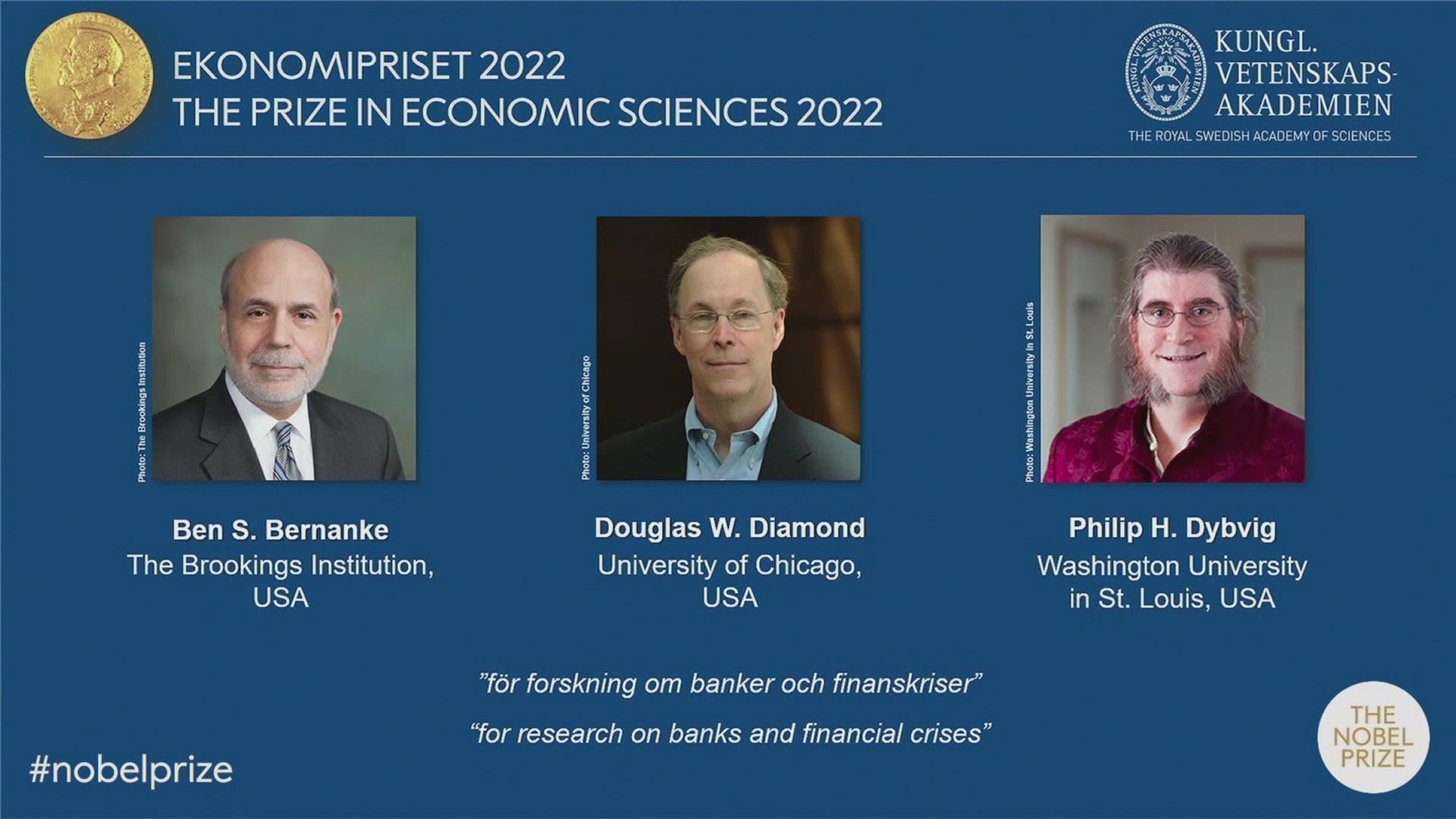Africa-Press – Mauritius. The 2022 Nobel Prize in Economics went to Ben Bernanke, Douglas Diamond and Philip Dybvig for research on banking and financial crises, the Royal Swedish Academy of Sciences said on Monday. The three warned of systemic risks of bank collapses and explained why preventing such collapses is critical for the smooth running of the economy.
Ben Bernanke was chairman of the Federal Reserve (Fed, the American central bank) between 2006 and 2014 and was at the head of the institution in the 2008 global financial crisis, when several US financial institutions collapsed, such as Lehman Brothers, and others received record US Treasury bailouts.
The award comes at a time when the rise in interest rates in several rich countries makes the economic environment more challenging for banks and highlights the importance of a solid financial system.
Since the 2008 crisis, the United States, eurozone countries and several developed economies have been monitoring banking systems more closely, carrying out periodic “stress tests” on banks.
Douglas Diamond is an economist at the University of Chicago and Philip Dybvig at Washington University in St. Louis. Bernanke currently works as a researcher at the Brooking Institution in Washington, United States.
Intermediaries between savers and borrowers In 1983, Bernanke wrote a paper that showed how bank failures can propagate into financial crises – rather than being the result of the crisis itself. In studies, he pored over the Great Depression of the 1930s.
In the same year, Diamond and Dybvig showed in a research the inherent risks of a process called, in financial jargon, maturity transformation, which occurs when banks borrow short-term to use these resources in long-term financing. For the economy to function, resource savings must be directed towards investments or financing.
However, there is a conflict in this: savers want immediate access to savings in the event of unexpected spending, while business people and other borrowers – such as borrowers – need to know if they will be forced to repay credit early.
Diamond and Dybvig showed how banks offer a good solution to this “problem”. By acting as intermediaries between the two ends, these institutions accept deposits from many savers and allow them to access their funds when they want, while offering long-term loans to those who need it.
Bank run risk The researchers’ analysis showed, however, that banking activity is vulnerable to rumors of an imminent collapse. If several savers rush to the bank to get the money, the rumors become a prophecy. This dangerous dynamic can be avoided through government measures such as deposit guarantees and, ultimately, lines of credit for banks.
Douglas Diamond also wrote about how banks monitor their customers to whom they lend money and highlighted that this knowledge about creditors disappears when the financial institution fails, amplifying the consequences of collapse.
The laureates laid the foundations for our current understanding of why banks are needed, why they are vulnerable and what to do about it, summarized John Hassler, an economist at Stockholm University and a member of the committee that selected the awardees.
Upon learning of the award, Douglas Diamond was asked if he would give any warning to banks at that time: In periods when things happen unexpectedly, I believe that many people are surprised at how interest rates have gone up.
Previous editions Since last Monday, the 3rd, the Nobel has already announced the laureates in the categories of Medicine, Physics, Chemistry, Literature and Peace.
Economics is traditionally the last Last year, the economics prize was awarded to three economists: Canadian David Card, American Joshua D. Angrist and Dutchman Guido W.
Imbens. The trio won the award for their research on the labor market and for innovations in the methodology of causal relationships, both based on natural experiments. That is, from real-life situations.
The Economic Sciences Prize, officially called the Bank of Sweden Prize for Economic Sciences in Memory of Alfred Nobel, was established in 1968 by Sveriges Riksbank, the Central Bank of Sweden, and awarded for the first time in 1969.
In 53 years, the The Nobel Prize in Economics was awarded to 92 people, including two women. Elinor Ostrom was the first woman to receive a Nobel Prize in Economics since the inception of the prize, for her analysis of economic governance, especially in the study of the commons.
The American refuted the idea that natural resources used collectively would be destroyed in the long term. She showed that when these resources are used by many people, rules are set in society about how they should be cared for in a sustainable way.
For More News And Analysis About Mauritius Follow Africa-Press







